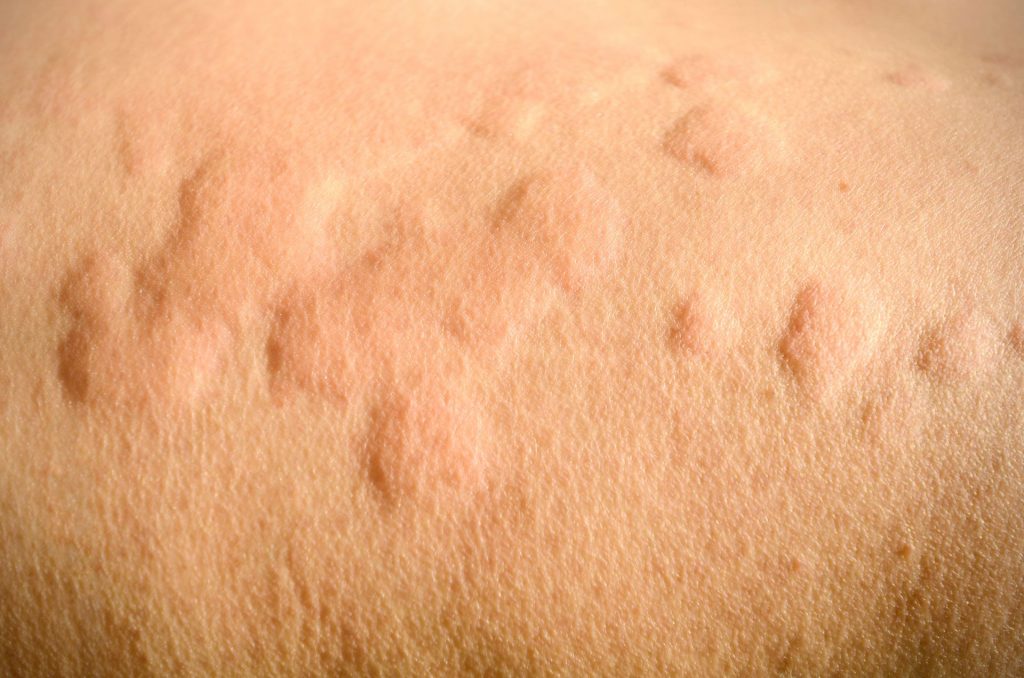What Are Hives?

Now that we’ve shown you multiple pictures of hives all over the human body, let’s define exactly what hives are. Hives are almost always an allergic reaction. Usually, the allergic reaction is a reaction to either food that has been consumed, a drink that has been drank, or a medicine that has been taken. When someone breaks out in hives they typically get red welts (or welps, however you want to say it) on their bodies and they can occur most anywhere on the body. The surface of the skin gets red and itchy. The skin is elevated above the normal skin where the hives are present.
Here are some frequently asked questions and answers about hives. I hope you find this information valuable.
What Causes Hives?
As I mentioned, hives can be caused by food, drink, or medicine. But other things can cause hives as well, including pollen, cat dander, other animal dander, and insect bites.
What Foods Trigger Hives
Many different foods can trigger hives in different people. Foods that most often trigger hives are nuts, milk, eggs, and shellfish.
What Else Can Cause a Person to Break Out in Hives?
Infections can cause hives, certain illnesses can cause hives, such as lupus and leukemia to name a couple, excessive sweating can cause hives, too much sun exposure can cause hives, too much stress or emotional issues can trigger them, and so can extreme cold.
What Are The Symptoms of Hives?
Symptoms associated with hives are “wheals” which is the term used for the red welts which typically have well defined edges to them, swelling of the skin’s surface, and itching.
What Are The Treatments For Hives?
Antihistamines are usually used to treat hives breakouts. Some people take loratadine or cetirizine to treat their hives, but the most popular and most effective antihistimine to take is Diphenhydramine, although it tends to make many people drowsy, so don’t take it and then drive.
To avoid irritation wear loose fitting clothes and take cool showers.
Are Hives Dangerous?
Generally hives are not dangerous. They usually go away on their own. They are one of those things that look way worse than they actually are. So if you break out in hives or if your child breaks out in hives do not panic. They will likely clear up sooner than you’d think.
Are Hives Contagious?
Fortunately, hives are NOT contagious. Hives will not spread to other people if they are touched.
Trending Health Topics
- ADHD
- Allergies
- Arthritis
- Bipolar Disorder
- Bunions
- Car Accidents
- Chron's Disease
- Common Cold
- COPD
- Depression
- Dry Skin
- Dry throat
- Eczema
- Fungal Infection
- GERD
- HIV/AIDS
- Hypertension
- Irritable Bowel Syndrome (IBS)
- Multiple Sclerosis
- Osteoarthritis
- Psoriasis
- Rheumatoid Arthritis
- Skin Disorders
- strep throat
- Type 2 Diabetes
- Uncategorized